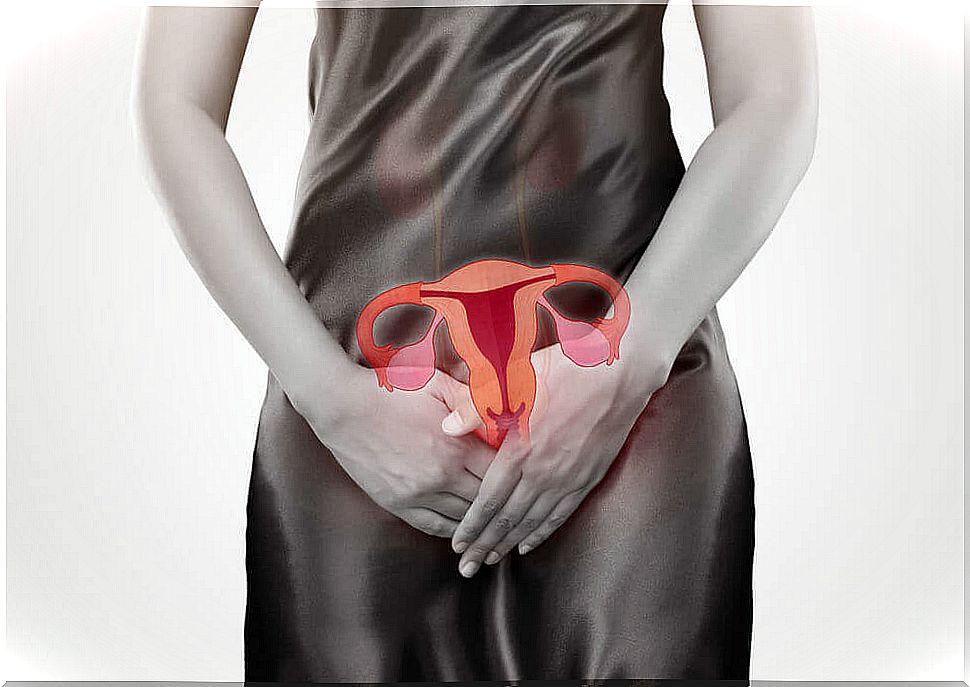These Are Symptoms Of Ovarian Cancer!
Ovarian cancer is unfortunately fatal in many cases because the symptoms are usually only discovered when it is far too late.

Ovarian cancer is usually not recognized by those affected, but only becomes apparent during routine examinations. This alone should encourage you to really go to the gynecologist for check-ups on a regular basis. Also note various symptoms of ovarian cancer that we will describe in more detail today.
How dangerous is ovarian cancer?
Ovarian cancer is a particularly aggressive form of cancer and the second most common cancer of the female genital organs. Since no symptoms appear for a very long time, it is recognized very late in most cases.
The average age of the sick person is 60 years, in women under 50 years of age this type of cancer occurs very rarely.
The risk of developing ovarian cancer is not only due to environmental influences, living conditions, eating habits and lifestyle, but there is also a genetic component. The risk is particularly high when the following factors occur:
- Old age
- infertility
- Childlessness
- Environmental pollution
- Bad eating habits
- Family background
If your family has had breast cancer or ovarian cancer before, it makes sense to talk to a doctor as a preventive measure and to do the checkups more often.
Please discuss this with your doctor. Let him know that relatives are already sick, because you are not always asked and your doctor cannot read it from the tip of your nose!
Incidentally, pregnancy, breastfeeding and the use of the “pill” reduce the risk of developing ovarian cancer!

These are the first symptoms of ovarian cancer
The insidious thing about ovarian cancer is the dangerous fact that it goes unnoticed until it has reached a considerable volume. Typical symptoms only arise due to the size of the tumor. Before that, the symptoms of ovarian cancer are absent or very diffuse.
Possible signs can be:
- The waist circumference increases with the weight remaining the same
- Bloating, gas, indigestion
- Tiredness and exhaustion
- Intermenstrual bleeding
- Postmenopausal bleeding
- Urge to urinate
If you are unsure, clarify this with your doctor. Not every symptom indicates cancer and ovarian cancer does not always hide behind these symptoms!
How good are the chances of recovery?
Ovarian cancer is fatal in half of all cases. Most metasthases have already formed by the time the diagnosis is made, which have spread the cervical disease further in the body. The metastases are often found in the abdomen, which can lead to colon cancer, peritoneal cancer, liver cancer, but also lung and breast cancer.
Once the cancer is diagnosed, it depends on how large the tumor is and whether it has already spread. In any case, it is necessary to surgically remove the affected organ, the ovary or the fallopian tube. If the tumor has already spread, further measures are required. Now is the time to act as quickly as possible!

Can you prevent pus cancer?
Because ovarian cancer is fatal in 50% of all cases, it makes sense to think about preventive measures. Regular, close-knit preventive examinations by the gynecologist are an important form of prevention. The annual check-up is not sufficient, it should then take place every 6 months.
The gynecologist should also do an ultrasound scan and possibly arrange for a blood test to look for certain tumor markers in the blood. However, ultrasound and blood tests are not services that are covered by statutory health insurance.
If there is a family history of breast or ovarian cancer, a check-up every six months is usually not a problem. In addition, preventive colonoscopy, uterine lining samples and mammography can be carried out at regular intervals so that further evidence of ovarian cancer is not undetected.
If you belong to the risk group due to your living conditions and genetic predisposition, you could consider having your ovaries and fallopian tubes surgically removed as a precaution. An organ that is no longer there cannot become ill either. Before you take this radical step, however, you should be very sure that you have completed family planning.
Since ovarian cancer rarely occurs below the age of 50 and the average does not appear until the age of 60, you have a long time to think carefully about this decision. However, removal of the ovaries to prevent ovarian cancer is very controversial in society and medicine. Therefore, it is only performed on high-risk patients.









